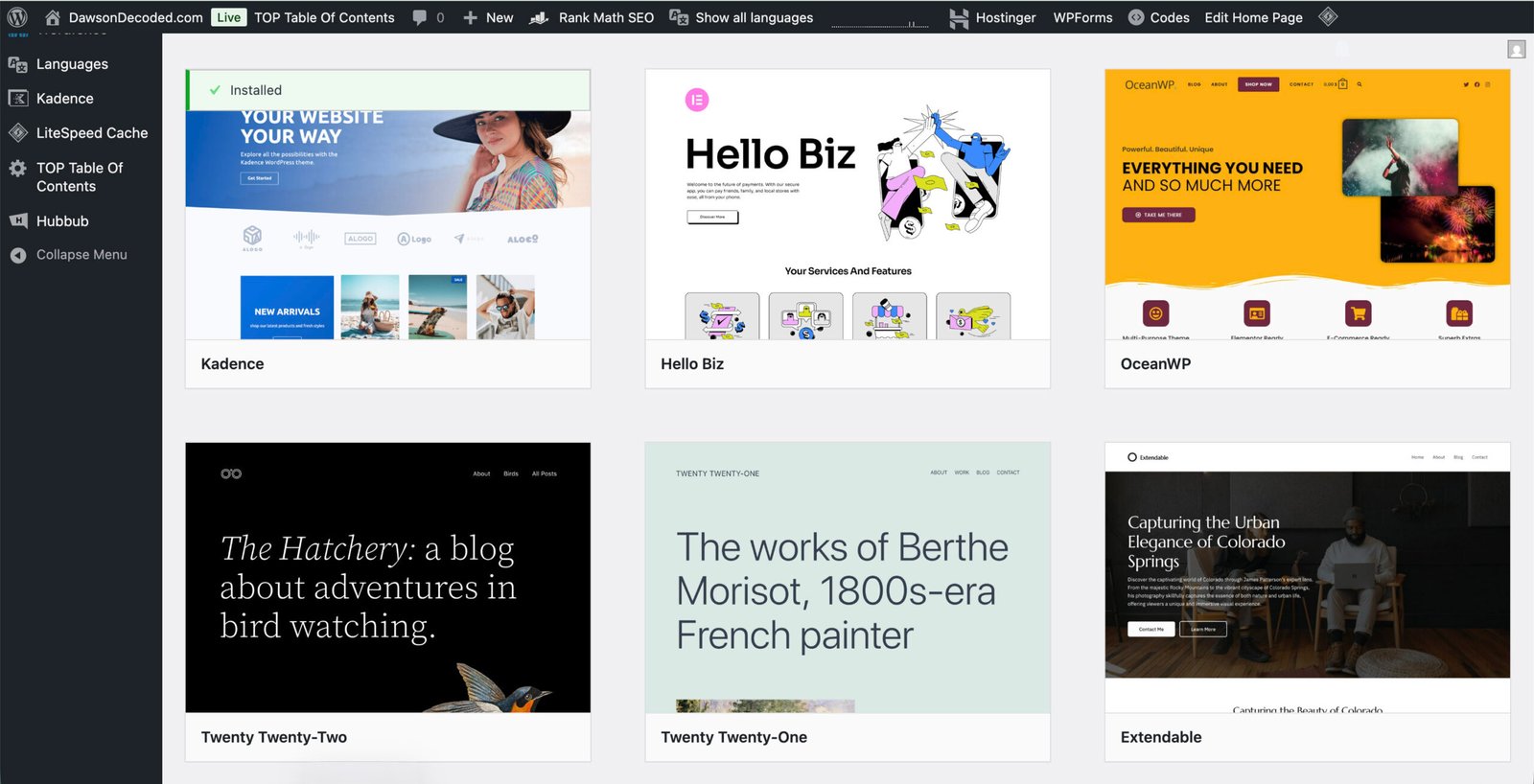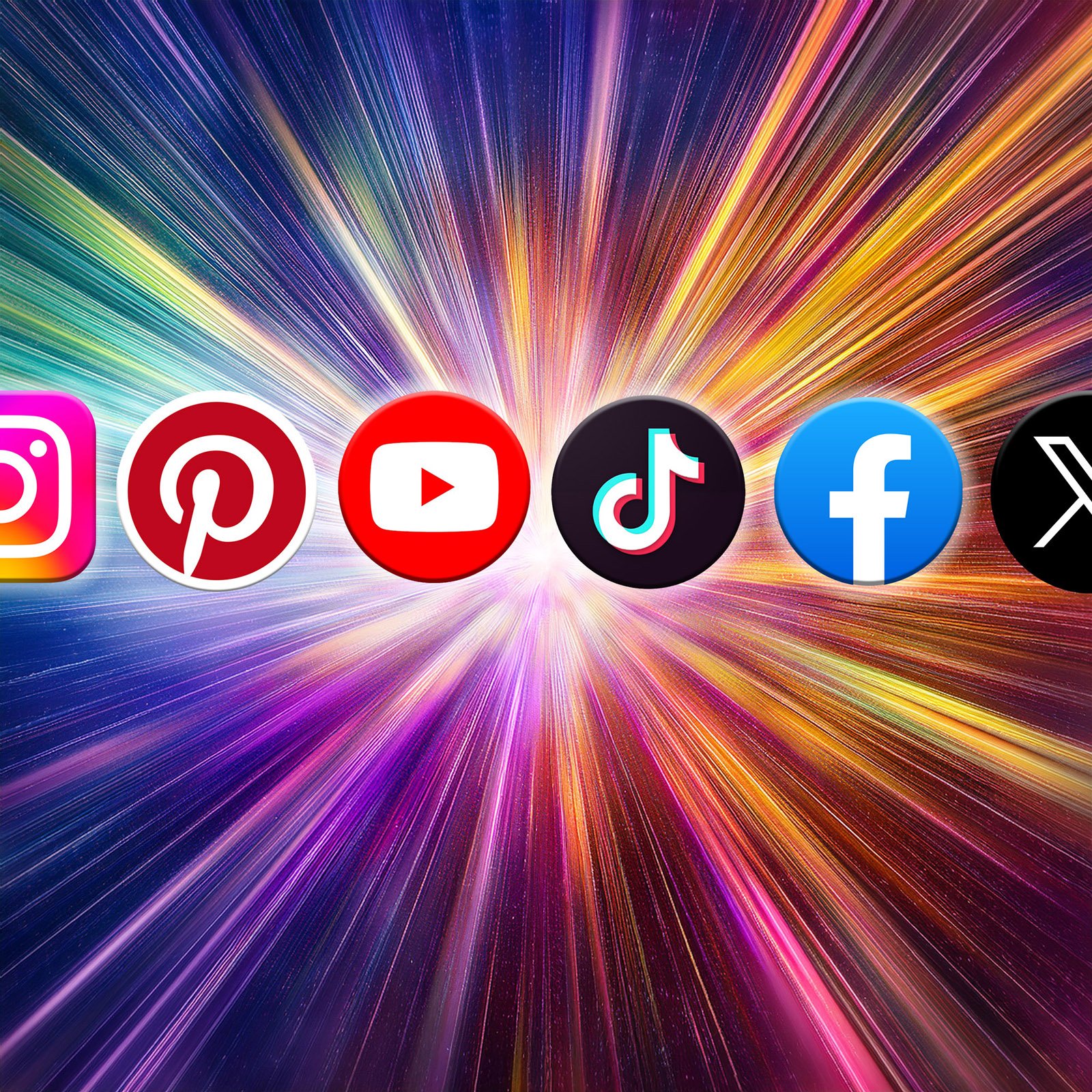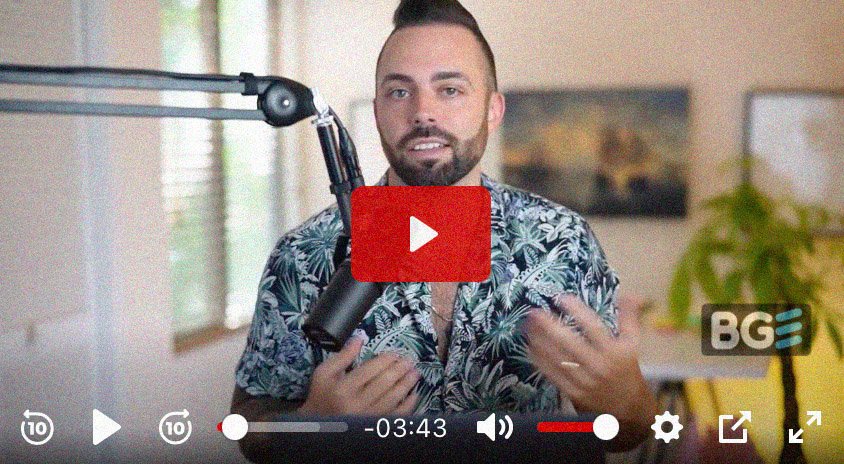Eight months chasing a mirage
For several weeks, I could feel the pressure building.
I had just poured eight months, flat out, into a blog. I invested into the software that lets me produce or promote content, and into a new laptop.
I’m married and work full-time as a graphic designer. Pay in this field is modest, and I’ve long wanted to change careers. But going back to study has always put me off: after exhausting days, I don’t have the energy. Full-time study is out of the question: there’s the mortgage and the bills to pay.
Early in 2025, I had two options: either take an online course in my spare time and start a new career from scratch, or make a more natural transition from my job to running a monetized blog, hoping to earn a supplemental income quickly.
I chose the second path.
Launched with a lot of enthusiasm, the project ate up all my free time. On a few occasions, I told my wife I’d soon be earning a little extra. First I needed three months to build a base, then four, then five. I was finally adding affiliate links and had published an ebook, the first in a series.
I still wasn’t earning anything, and the pressure kept rising. Six months, then seven. With my day job, that meant 10–14 hours a day, weekends included. My side job had become a relentless hamster wheel.
The research I did for my posts gave me an increasingly clear picture of the blogging landscape. Google’s introduction of AI answers had changed the game. I could see it in my own habits: I was using AI for everything and visiting almost no blogs. Some strategies could, in theory, adapt to this shift, but they were limited. And OpenAI’s recent Atlas launch reinforced that impression. The future pointed toward ever tighter integration between consumers and AI, in a world where AI becomes the primary, even sole, interface.
Without Google, almost everything rests on social networks. But I couldn’t find the time needed to promote my blog. The common advice was 80 percent promotion to 20 percent writing, with roughly one post a week. I could barely do the opposite.
My research also suggested it takes, on average, two years for a blog to bring in any income at all, even a modest amount, and twice that to reach a full-time income. And there are no guarantees. Worse, those figures date back from 2024, before Google’s new constraints are fully accounted for.
Here’s an important point: commercial blogging is a speculative venture where the main resource is the time you invest. And investing four years or more before earning a salary may be conceivable at twenty, but much less at my age.

Changing course
Now imagine spending two years studying, with a degree at the end. If you choose a reasonably paid profession, you could be earning about $70,000 a year, or more. What are the chances of getting that online after two years?
So last week I decided to call it, and I started new studies in OHS.
Rethinking this blog
That said, I like blogging, and I’m not stopping. Eight months of learning and experimenting have taught me a lot. I’ve gained skills I use every day. I just don’t need to worry so much about the commercial angle. If this blog earns some money down the line, great, but I won’t be a slave to it. I’ll still write at my own pace, without forcing myself into a niche.
All in all, I feel relieved. The pressure is gone and I’ve got my life back. Blogging is great, but chasing the mirage of success and financial independence can end up costing you a lot of time.
JD
N.B. Some of this site’s content still reflects my earlier enthusiasm for making money online. I’ll go through the posts one by one and either update or remove them so that this site reflects what I believe today.
Great to have you here! Feel free to leave your thoughts in the comments.
Hello, I’m John Dawson, a graphic designer (for a little while longer) and the writer behind DawsonDecoded, where I share hands-on insights on AI, blogging, social media, and whatever else crosses my mind.”
Get new posts by email when they’re worth sharing.
No spam.
More on blogging:
How to start a blog and find your first readers (part 3)
Reading Time: 9 minutesMake it look and feel professional: pick a lightweight theme, set a basic brand kit, and publish the must‑have pages.
How to fact-check your blog post
Reading Time: 5 minutesFact-checking protects both you and your readers. This simple process allows you to separate facts from opinions, verify claims, and add safeguards so your published content remains accurate, credible, and trustworthy.
Can you still make a living from a blog in 2025?
Reading Time: 5 minutesBetween viral promises and reality, can a blog still generate a viable income in 2025? Here’s what the numbers say.
Blogging with AI
Reading Time: 4 minutesAI can speed up ideas, drafts, and edits, but it should assist rather than replace you. Keep your voice, verify facts, and add your perspective so posts stay authentic and useful.
How to start a blog and find your first readers (part 2)
Reading Time: 8 minutesIn Part 2 of this beginner’s guide, we move from idea to reality by getting your blog online. You’ll learn what domains and hosting actually are, and how to install WordPress in just a few clicks.
How to start a blog and find your first readers (part 1)
Reading Time: 6 minutesLearn how to choose a blog niche you’ll love and a name that can grow with you, the first step in building a successful blog.
What are the best social media platforms to drive traffic to your blog?
Reading Time: 10 minutesWhich social platform is best for growing a blog? Here’s a breakdown of the main networks: their audiences, strengths, and weaknesses.
More on blogging:
You might like:
Words that are mine
Reading Time: 2 minutesAfter months of writing mostly for algorithms and sales funnels, I stopped obsessing over online income and started writing in my own voice.
From BGE to “Launch to $10K”, Enfroy’s strategic shift signals the end of SEO-first blogging
Reading Time: 4 minutesAs of November 2025, BGE runs as a free masterclass and Enfroy funnels to Launch to $10K. With AI Overviews reducing clicks, commercial blogging is rarely a standalone model anymore.
The dark side of online income: how scammers are using AI and social media to make millions
Reading Time: 7 minutesScammers use AI and social media ads to create fake funnels that mimic legitimate ones. This post explains how they work and what ethical marketers can learn.
Betting on yourself: why creating content will always be more profitable than playing the lottery
Reading Time: 8 minutesWhy blog instead of buying lottery tickets? Because the odds and the long-term payoff make content creation a far smarter bet for financial success.
Are influencer courses still worth it in 2025, or just built on yesterday’s internet?
Reading Time: 3 minutesOnline courses promise to teach you how to make money as a creator. But in 2025, are they worth it or just selling outdated methods?
Can you really make passive income with stock photography in 2025?
Reading Time: 23 minutesCan you really earn passive income selling stock photos? I tested it myself. Here’s what the reality looks like and what it takes to make it work.















Leave a Reply